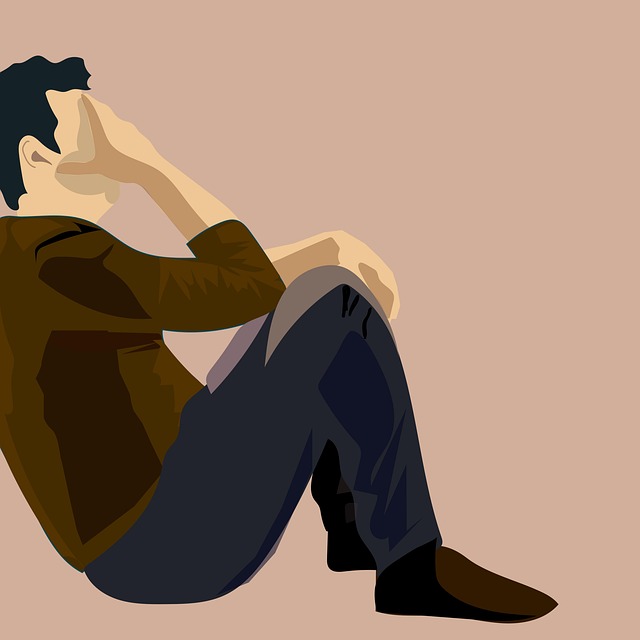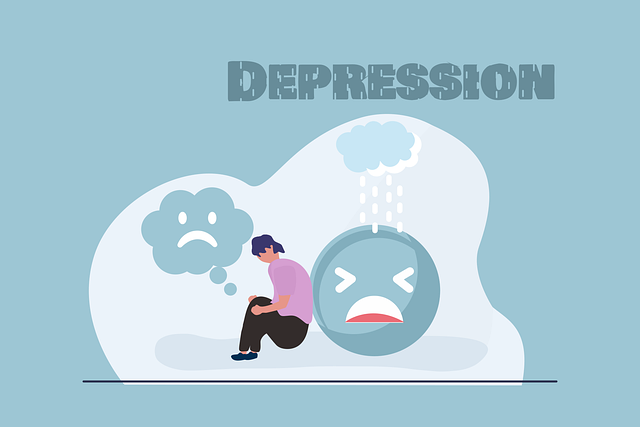Postpartum depression, a serious condition affecting new mothers, requires comprehensive treatment programs combining psychotherapy (e.g., CBT), medication (SSRIs/SNRIs), lifestyle changes, support groups, and education. These tailored approaches address symptoms like sadness, anxiety, exhaustion, and bonding difficulties, emphasizing the importance of professional evaluation, personalized care, and integrated holistic strategies for effective healing and improved maternal well-being.
Postpartum depression (PPD) is a common yet serious condition affecting new mothers. This comprehensive guide explores various treatments for PPD, empowering parents to seek help. We delve into the intricacies of understanding and diagnosing PPD, highlighting symptoms often overlooked. From evidence-based psychotherapy to medication-assisted treatment, self-care practices, support groups, and holistic therapies, we provide an in-depth look at depression treatment programs tailored to individual needs.
Understanding Postpartum Depression: Symptoms and Diagnosis

Postpartum depression is a common yet serious condition affecting many new mothers, often starting within the first few weeks after giving birth. It’s more than just feeling ‘blue’ or experiencing baby blues, which are usually temporary. Symptoms can include persistent sadness, anxiety, exhaustion, and difficulty bonding with the baby. These feelings can significantly impact a mother’s ability to care for herself and her child.
Diagnosis involves a comprehensive evaluation by healthcare professionals who consider symptoms, duration, and potential triggers. Depression treatment programs often include therapy such as cognitive-behavioral therapy (CBT), which helps identify and change negative thought patterns. Medication, like selective serotonin reuptake inhibitors (SSRIs), might also be prescribed to manage symptoms. Support groups and education on postpartum changes can be valuable additions to effective depression treatment programs tailored to the individual’s needs.
Psychotherapy for Postpartum Depression: Effective Talk Therapy

Psychotherapy, or talk therapy, is a highly effective treatment approach for postpartum depression (PPD). It provides a safe and supportive space for new mothers to express their feelings, thoughts, and concerns, allowing them to gain valuable insights into their condition. Through psychotherapy, individuals can learn coping strategies to manage symptoms of PPD, such as sadness, anxiety, and fatigue.
Different types of psychotherapy, including cognitive-behavioral therapy (CBT) and interpersonal therapy, have proven successful in treating PPD. CBT helps individuals identify and change negative thought patterns, while interpersonal therapy focuses on improving relationships and social connections, which can significantly impact mental health. These depression treatment programs offer personalized support tailored to each mother’s unique experiences and needs, fostering healing and recovery.
Medication-Assisted Treatment: Exploring Pharmaceutical Options

Many effective depression treatment programs include medication-assisted approaches, which can play a significant role in managing postpartum depression. These programs often prescribe selective serotonin reuptake inhibitors (SSRIs) or serotonin-norepinephrine reuptake inhibitors (SNRIs), commonly used to balance brain chemicals that regulate mood. Medication can help alleviate symptoms and restore emotional well-being for many new mothers.
When considering medication, it’s essential to consult with a healthcare provider who specializes in perinatal mental health. They will carefully monitor the mother’s response to medication, taking into account potential side effects and ensuring the treatment is tailored to her unique needs. This personalized approach, combined with other therapeutic interventions, can offer comprehensive relief from postpartum depression symptoms.
Lifestyle Interventions: Self-Care Strategies for Recovery

Lifestyle interventions play a pivotal role in effective depression treatment programs for new mothers. Beyond clinical therapy, incorporating self-care strategies can significantly enhance recovery. This involves cultivating healthy habits such as regular exercise, which releases endorphins known to boost mood and reduce stress. Adequate sleep is equally crucial; establishing a consistent sleep routine helps regulate hormones related to mental health.
Nutrition also comes into play. Eating a balanced diet rich in omega-3 fatty acids, vitamins, and minerals supports brain function and overall well-being. Additionally, mindfulness practices like meditation or yoga can help manage symptoms by promoting relaxation and fostering a sense of calm. These self-care tactics are integral components of holistic postpartum depression treatment programs designed to nurture both mind and body.
Support Groups and Community Outreach Programs

Support groups and community outreach programs play a vital role in the comprehensive approach to postpartum depression (PPD) treatment programs. These initiatives provide a safe and non-judgmental space for new mothers to connect, share experiences, and offer mutual support. Participatory sessions foster open dialogue, enabling individuals to express their feelings and gain insights from peers facing similar challenges.
Community outreach extends the support network by educating and raising awareness about PPD among local populations. These programs often include educational workshops, screening events, and access to specialized depression treatment services. By integrating these initiatives into larger depression treatment programs, healthcare providers can enhance early intervention efforts, reduce stigma, and improve overall mental health outcomes for new mothers.
Holistic Approaches: Alternative Therapies and Their Benefits

Many women struggling with postpartum depression (PPD) find solace in holistic approaches that go beyond traditional medication and therapy. These alternative therapies offer a nurturing and comprehensive way to heal mind, body, and spirit, which is especially beneficial for new mothers who may face challenges in accessing or responding to conventional depression treatment programs.
Holistic methods include practices such as mindfulness meditation, yoga, acupuncture, herbal remedies, and massage therapy. For instance, mindfulness helps mothers stay present and cultivate a non-judgmental awareness of their emotions, while yoga promotes physical relaxation and mental clarity. Acupuncture has been shown to regulate mood and reduce stress, offering a natural way to balance hormones that might be imbalanced due to PPD. These alternative therapies not only provide immediate relief but also empower women with tools to manage their symptoms effectively in the long term.
Choosing the Right Depression Treatment Program: A Comprehensive Guide

Choosing the right depression treatment program is a crucial step in managing postpartum depression effectively. It’s essential to understand that no two experiences are the same, and what works for one person might not work for another. Therefore, a comprehensive guide should start with an evaluation of symptoms, severity, and personal preferences. This initial assessment helps in tailoring a program that aligns with individual needs.
Depression treatment programs can vary widely, from therapy sessions to medication management, support groups, or even alternative therapies like mindfulness practices and light therapy. In terms of therapy, cognitive behavioral therapy (CBT) is often recommended for treating postpartum depression due to its effectiveness in addressing negative thought patterns and behaviors. Medication, such as selective serotonin reuptake inhibitors (SSRIs), can be prescribed by a healthcare provider to help balance brain chemicals associated with mood regulation. Support groups offer a safe space for sharing experiences and gaining emotional support from peers facing similar challenges.
